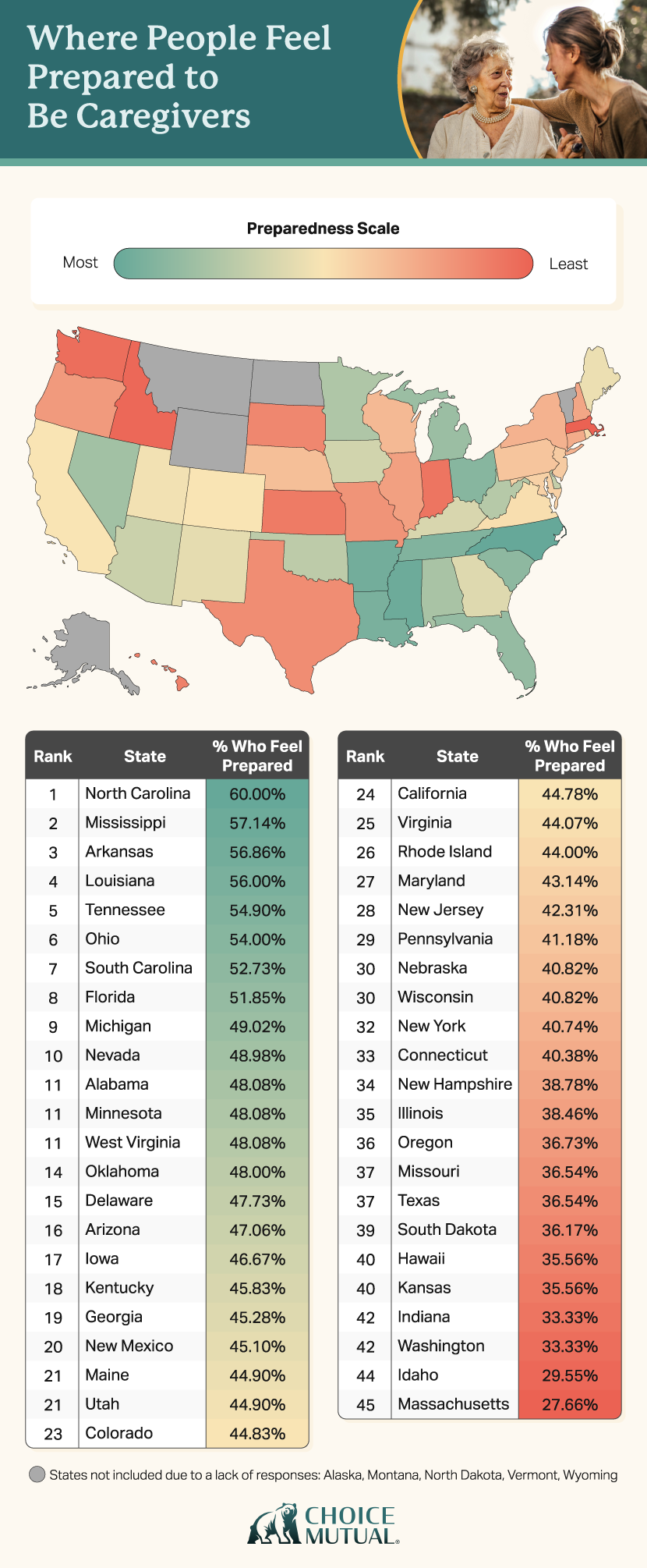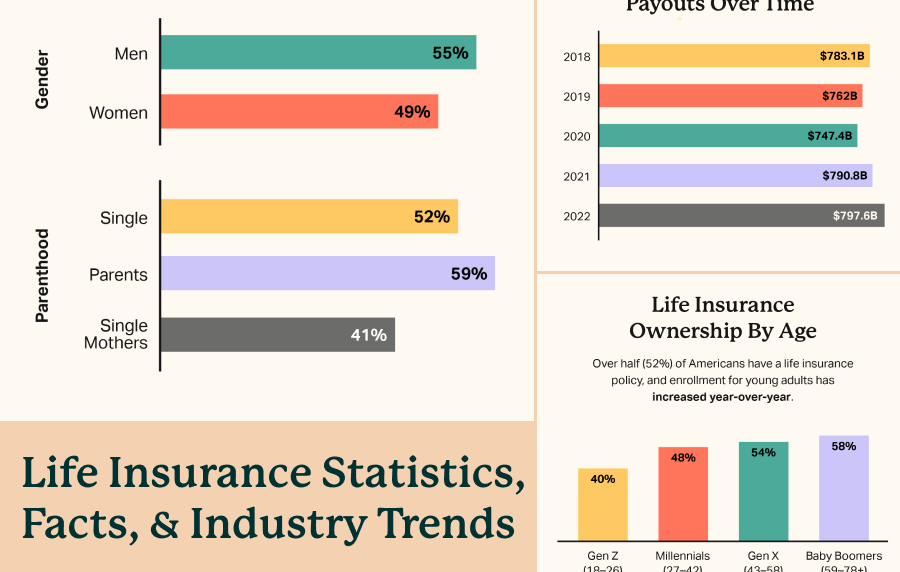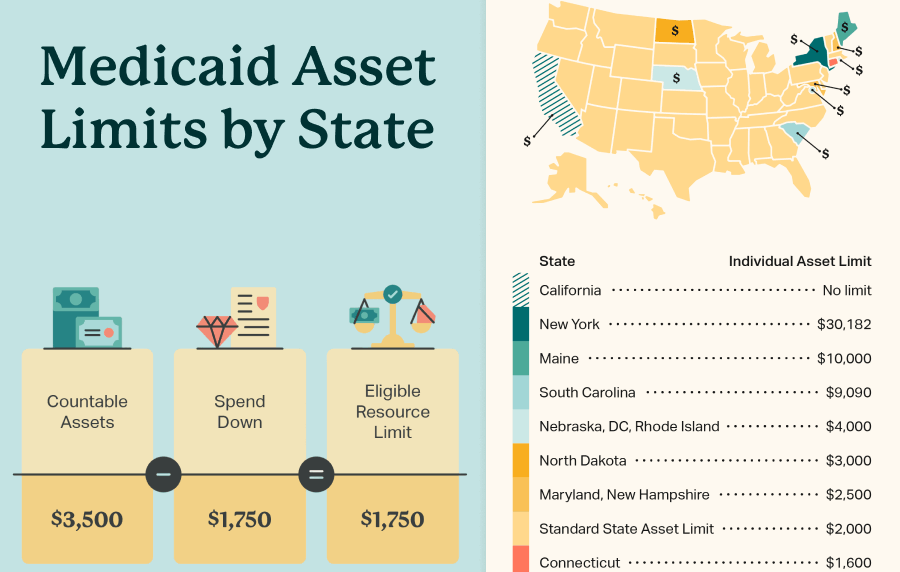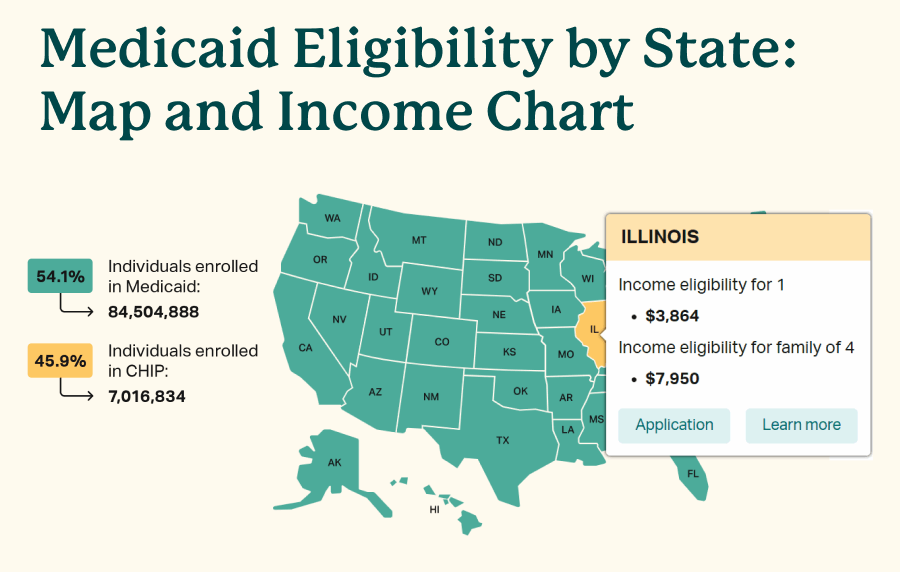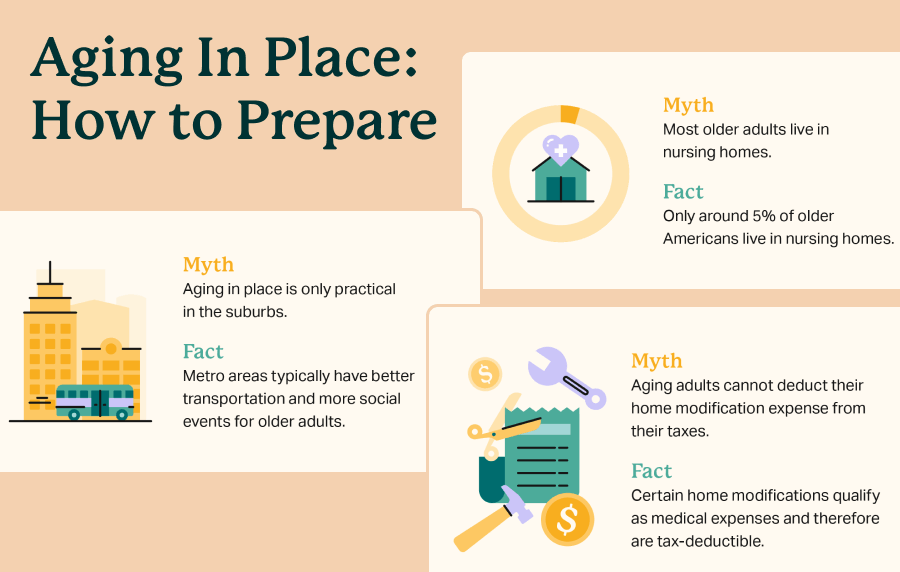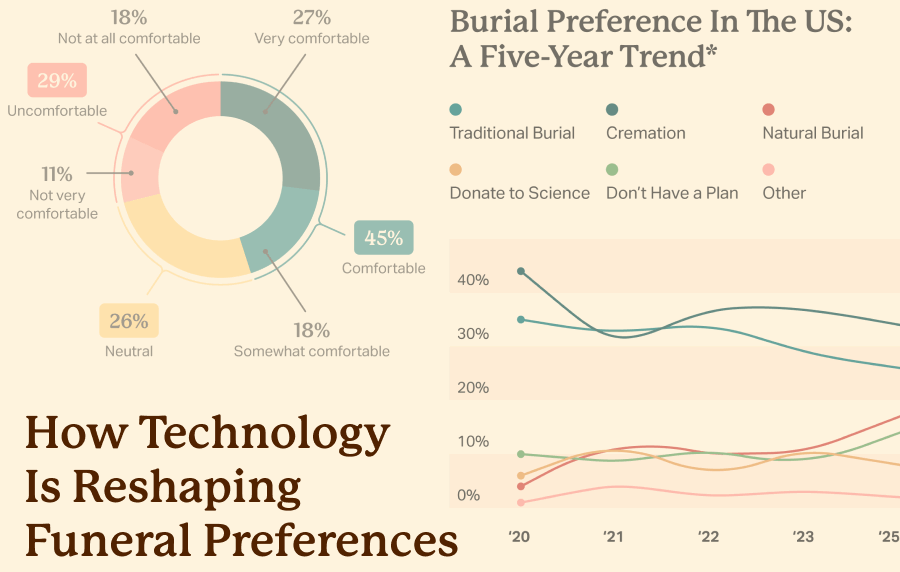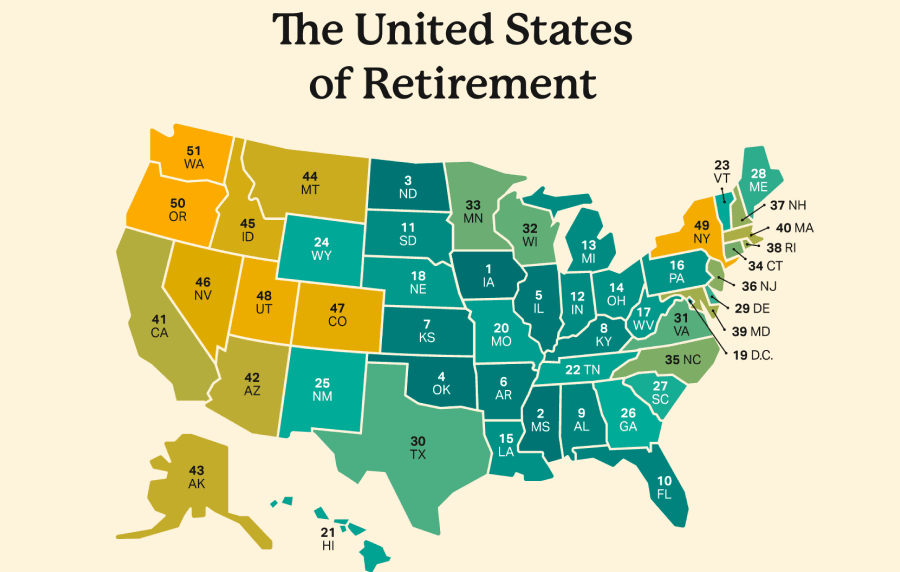Where Americans Feel Most And Least Prepared To Be Caregivers
While some people are fully aware of the plans to care for their parents when the time comes, others don’t feel prepared for this looming responsibility. North Carolina residents are leading the way as the most prepared, with 60.0% saying they are ready. Regarding the legal and financial arrangements their parents have in place, a third of North Carolinians say they are fully informed.
Up next, with 57.1% of residents feeling prepared, is Mississippi. Residents of the Magnolia State are the most likely in the U.S. to think their parents consider them prepared to support them. Arkansas ranks third, with 56.9% of residents saying they feel prepared to take on the caregiving responsibilities.
On the other end of the spectrum, Massachusetts residents feel the least prepared to take care of their parents. Residents of the state are the most likely in the country to say they are not informed of the legal and financial arrangements their parents have in place.
Next, Idaho ranks as the second least prepared state for caregiving duties. When asked about their parents’ perceptions of their preparedness, nearly 1 in 2 Idaho residents said they think their parents would consider them unprepared to support them. Indiana ranks third for the least prepared, and they are also the most likely to feel stressed when thinking about caring for their parents.
The Caregiving Duties That Worry Americans Most
So what aspects of caregiving concern Americans most? We found that for 70% of people, emotional toll and potential burnout are the most common worries. Experts at the Family Caregiver Alliance emphasize that your feelings when you become a caregiver, whether good or bad, are valid. They say it is common for caregivers to bury their negative feelings out of fear of being judged — whether they’re judged by others or themselves — but it’s important to remember that ignoring these feelings can have a lasting impact.
The FCA says that you can experience a physical toll, from poor sleep and trouble eating to illness and substance abuse, if you ignore how you’re feeling. So, they encourage caregivers to express their feelings productively so that you and whomever you care for can cope better.
Up next, as the second most common worry is financial strain. For more than two-thirds of Americans, the idea of financially supporting their parents is concerning. While discussing finances can be a difficult subject, the Elder Care Alliance encourages caregivers to talk to their parents about their finances before cognitive or physical factors hinder their decision making. By taking these steps early, you can help to ensure a smooth transition once the time comes for you to take control of their finances.
Coming in third, 63% of Americans say they worry about balancing their parents’ wishes with reality. Decisions regarding where they will live and their end-of-life care are critically important, and sometimes what your parents’ want is not what is best.
For example, your parents may desire to live in your home with you once living alone is no longer feasible. However, sometimes, a nursing home can better provide the medical care your parents may need. While it can be challenging to go against their wishes, understanding the situation and adjusting as needed is part of being a caregiver.
Overall, we discovered that 1 in 3 Americans live more than 100 miles away from their parents. Perhaps this is why 60% of people worry about navigating their parents’ medical care. With such a great distance, helping mom or dad get to their doctor’s appointments or picking up their prescriptions becomes much more difficult.
Unload Some of the Burden with Choice Mutual
Looking after your aging parents may feel like a burden for some, while others view it as a chance to give back to their parents. Regardless of your view, the new responsibilities can take a toll on your life. Whether that be from adjusting your schedule to be available for your parents or rearranging your finances to take on new costs, it can be a lot for anyone.
So, if you are among those who are feeling uneasy about the caregiving duties to come or are already handling the new responsibilities now, the team at Choice Mutual can help. We know how difficult some end-of-life conversations can be, so let us help you navigate these next steps. From providing end-of-life resources to understanding the basics of burial insurance, we are here to take some of the planning off your plate.
Methodology
In this study, we set out to determine where Americans feel most and least ready to take care of their aging parents. To do this, we surveyed residents of every state and asked questions about their preparedness, what aspects of caregiving concern them, what knowledge they have of their parent’s plans, and more. Finally, we ranked states based on the percentage of people who say they feel prepared to care for their parents.
- Nationally licensed life insurance agent with over 16 years of experience
- Personal annual production that puts him in the top .001% out of all life insurance agents in the nation.
Anthony Martin is a nationally licensed insurance expert with over 16 years of experience and has personally served over 10,000 clients with their life insurance needs. He frequently authors entrepreneurial and life insurance content for Forbes, Inc.com, Newsweek, Kiplinger, and Entreprenuer.com. Anthony has been consulted as an expert life insurance source for dozens of high-profile websites such as Forbes, Bankrate, Reuters, Fox Business, CNBC, Investopedia, Insurance.com, Yahoo Finance, and many more.
Choice Mutual often cites third-party websites to provide context and verification for specific claims made in our work. We only link to authoritative websites that provide accurate information. You can learn more about our editorial standards, which guide our mission of delivering factual and impartial content.
-
Family Caregiver Alliance. https://www.caregiver.org/resource/emotional-side-caregiving/
-
Elder Care Alliance. https://eldercarealliance.org/blog/taking-over-your-parents-finances/

